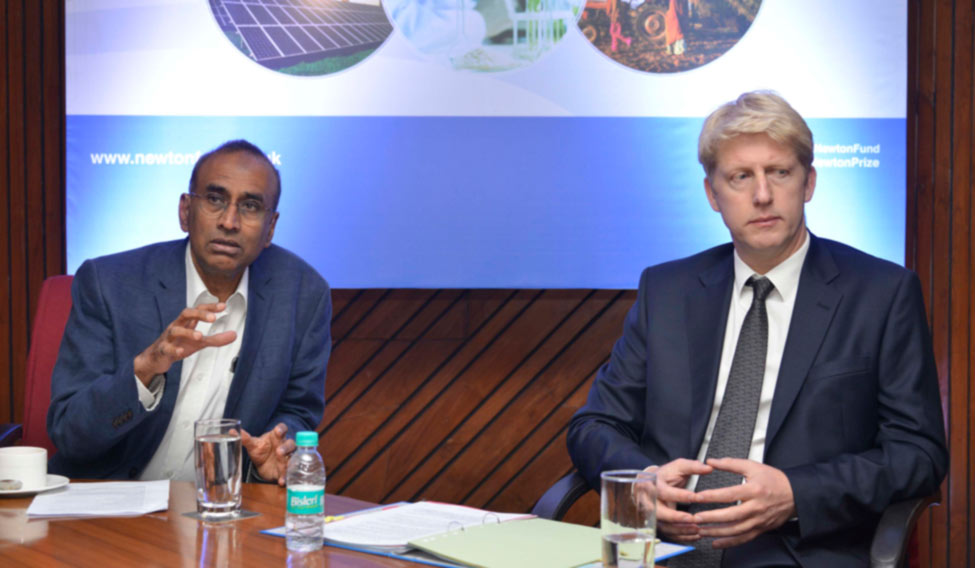It was a tough job to select two winners, given the high quality of ongoing research applications that were submitted for the Newton Prize, but the two winning Indo-UK collaborations which clinched the 20,000 pounds prize each had that little edge over other projects, said Sir Venkatraman Ramakrishnan, head of the Netwon Prize committee. He was in India, along with the UK's minister of state for science, research and innovation, Jo Johnson, to announce the prize, as well as to engage with the Indian government to take further a slew of other collaborative projects.
One of the winners was a joint research between St Thomas' hospital, London, and the Jawaharlal Nehru Medical College, Belgaum, on the introduction of a device that measures blood pressure and pulse rate. The low cost device is easy to use, has low maintenance and power requirements, and initial results show it predicts the risks of complications. The committee felt it could be a big boost in managing maternity care. "It is innovative, a good combination of engineering and medicine and has the potential to save lives,'' said Ramakrishnan.
The other prize went to the APEX II programme, which is developing photo voltaic cells to supply clean, sustainable and affordable energy. The research is a collaboration between Brunei University of London and The Indian Institute of Technology, Delhi. "We are entering a new era of solar energy, and India is importantly positioned for this. Prime Minister Narendra Modi has given great impetus to the development of the solar alliance and Britain is a leader in battery technology,'' added Johnson.
The Newton Prize encourage research in science between Britain and partner countries, India, Vietnam, Thailand and Malaysia. This year, the prize committee selected two winners from India.
Speaking to THE WEEK, Johnson said that while there were certain areas of science in which a lot of research was ongoing, there were some areas which could do with more interest and research, because of the potential they held. "One of these is anti microbial resistance, the other is oceans,'' he said. India and the UK have tied up for a joint research on anti microbial research, a pressing medical issue, and released a joint mapping report on AMR research in India.
Ramakrishnan said that the environment for scientific research in India had improved a great deal since the 1960s and 1970s, when he moved to the west. "This year's Nobel is awarded for cryoelectronics. I knew this was a revolutionary field and five years ago I had written to Dr K. Vijay Raghavan (secretary, department of biotechnology) to set up a cryogenic facility and the Indian government actually did so. We were able to persuade a top notch Indian scientist Vinothkumar K. Reghunath, [who works in eukaryotic protein membranes using electron cryo microscopy] to join the National Centre for Biological Sciences.”
Ramakrishnan said that many Indian scientists are now choosing to return. “If the Indian government provides good infrastructure and the freedom to do research, many more will choose to return. The US and UK do well in research because of the freedom they get.”






